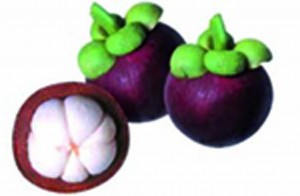 Ana Martinez and colleagues from Mexico have reported a theoretical study on the antioxidant mechanism of xanthones. Xanthones are bioactive compounds found in tropical fruits such as mangosteen (Garcinia mangostana) and have shown antioxidant behaviour in a number of experimental studies, however the mechanism of action is not thoroughly understood.
Ana Martinez and colleagues from Mexico have reported a theoretical study on the antioxidant mechanism of xanthones. Xanthones are bioactive compounds found in tropical fruits such as mangosteen (Garcinia mangostana) and have shown antioxidant behaviour in a number of experimental studies, however the mechanism of action is not thoroughly understood.
In this work, the antioxidant properties of 20 xanthones and 8 xanthone anions were studied and the more efficient free radical scavengers were identified using a theoretical approach based on single electron transfer (SET). The quantum chemical calculations showed that the reaction between xanthones and OH radicals is thermodynamically unfavourable, however the reaction between xanthone anions (which are present under physiological conditions) and OH radicals is exergonic, and so xanthone anions behave as antioxidants by deactivating the OH free radical species. Understanding the free-radical scavenging mechanisms of these compounds may help combat degenerative diseases such as Alzheimer’s disease which are linked to the antioxidant mechanistic pathway.
Read the article in full by clicking the link below. It’s free to access until March 13th!
Xanthones as antioxidants: a theoretical study on the thermodynamics and kinetics of the single electron transfer mechanism, A. Martínez, E. Hernández-Marin and A. Galano, Food Funct., 2012, DOI: 10.1039/C2FO10229C
You may also be interested in the following article which is free to acces.
Dietary chromones as antioxidant agents—the structural variable, M. M. Dias, N. F. L. Machado and M. P. M. Marques, Food Funct., 2011, 2, 595-602, DOI: 10.1039/C1FO10098J
You can keep up to date with the latest developments from Food & Function by signing up for free table of contents alerts and monthly e-newsletters.










